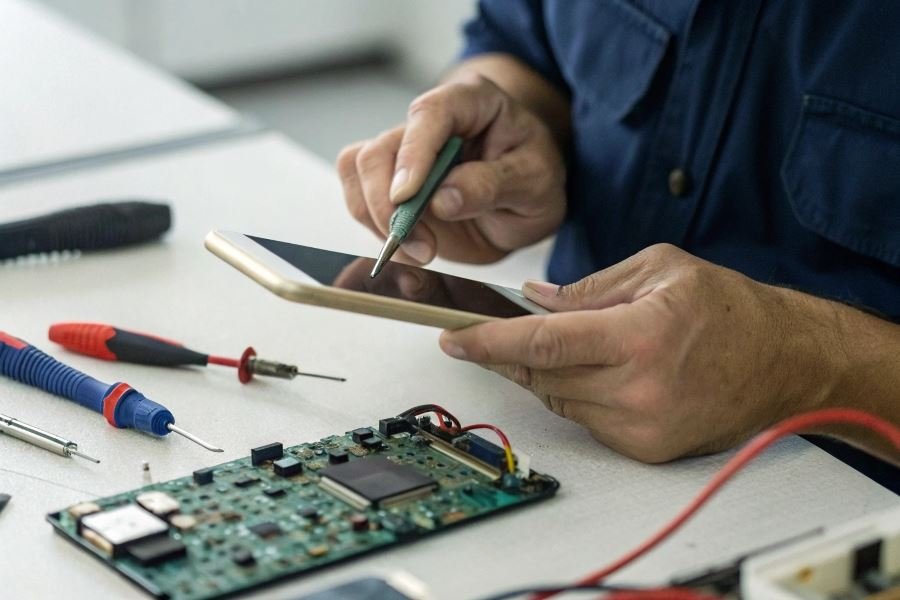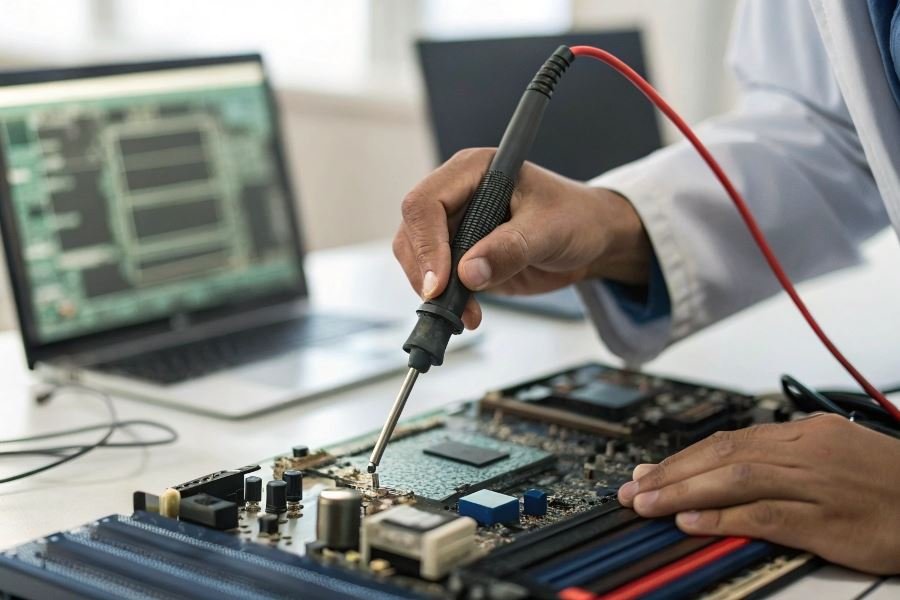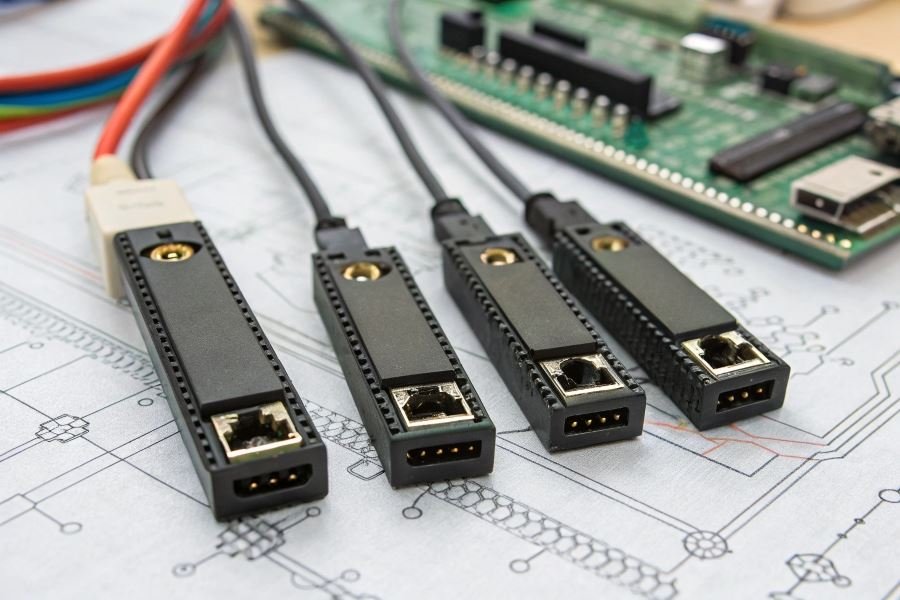
Ever wondered why some repair shops can fix your smartphone’s software issues in minutes while others leave you with a device that’s still glitchy after multiple visits? The difference often comes down to one critical factor: the programmer behind the repair.
When your iPhone freezes after an update or your Android device won’t boot properly, you’re not just looking for someone with basic repair skills—you need a specialized programmer who understands the complex relationship between hardware and software. These digital wizards possess the technical expertise to diagnose and resolve issues that standard technicians simply can’t touch.
The programmer’s role extends far beyond basic troubleshooting. They’re the ones who can reflash corrupted firmware, bypass activation locks (legally, of course), and recover data from devices that appear completely dead. Their specialized knowledge allows them to work at the code level, often saving devices that would otherwise be destined for the recycling bin.
Why specialized programming skills matter
Not all mobile device repair technicians are created equal. The best programmers bring a combination of formal education, manufacturer-specific training, and years of hands-on experience. They stay current with the latest security protocols from Apple, Samsung, and other manufacturers—crucial knowledge as devices become increasingly locked down against unauthorized repairs.
“The difference between a basic repair tech and a skilled programmer is like comparing someone who can change your oil to a master mechanic who can rebuild your entire engine.” — Mobile Repair Industry Association
Industry standards to look for
The mobile repair industry has evolved significantly, with several certification programs now available that validate a programmer’s expertise. Look for technicians certified by recognized organizations like the CTIA or those who have completed manufacturer-authorized training programs. These credentials ensure they follow proper protocols that won’t void warranties or compromise device security.
Essential Qualifications for Mobile Repair Specialists
Finding a qualified technician for your smartphone or tablet repair requires more than a quick Google search. The difference between a botched repair and a device that works better than new often comes down to the specialist’s credentials, experience, and equipment.
When evaluating how to choose a programmer for mobile device repair, three critical factors stand out: technical certifications, brand-specific experience, and diagnostic capabilities. These qualifications separate the true professionals from those who might cause more harm than good to your valuable devices.
Technical Certifications That Actually Matter
Not all certifications carry equal weight in the mobile repair world. Look for specialists with these industry-recognized credentials:
- Apple Certified iOS Technician (ACiT) – For genuine Apple repairs with warranty protection
- Samsung Certified Technician – Essential for Galaxy devices and their unique components
- CompTIA Mobile Device Specialist – A vendor-neutral certification showing broad repair knowledge
- Microsoft Certified: Modern Desktop Administrator – Important for Surface devices and Windows-based tablets
A technician with multiple certifications demonstrates commitment to professional standards and continuous learning. Ask potential repair specialists about their certification renewal practices—most quality credentials require periodic updates to maintain validity.
Brand Experience Is Non-Negotiable
Different mobile ecosystems present unique repair challenges. A specialist’s experience should align with your specific device:
| Brand | Critical Repair Skills | Common Issues |
|---|---|---|
| Apple | Logic board repair, Touch ID restoration | Water damage, battery degradation |
| Samsung | OLED screen replacement, Knox security | Screen burn-in, charging port failures |
| Pixel camera calibration, software debugging | Battery optimization, sensor failures | |
| Xiaomi | MIUI troubleshooting, component sourcing | Overheating, software conflicts |
The best repair specialists maintain relationships with multiple suppliers for authentic parts and stay current with manufacturer design changes.
Diagnostic Equipment Separates Professionals From Amateurs
Professional mobile device repair requires specialized tools that go far beyond a basic screwdriver set:
- Microscopic Soldering Stations – Essential for board-level repairs and microcomponent replacement
- Thermal Imaging Cameras – Identify overheating components and potential failures before they occur
- Battery Testing Equipment – Precise measurement of battery health beyond simple percentage displays
- Signal Testing Tools – Diagnose antenna, Bluetooth, and WiFi connectivity issues
Industry insight: Quality repair shops invest $10,000+ in diagnostic equipment alone. This investment directly correlates with repair success rates.
The diagnostic process should be transparent. A qualified technician will explain their findings using data from these specialized tools rather than making vague assessments. Ask potential repair specialists to describe their diagnostic workflow—professionals will have a systematic approach rather than trial-and-error methods.
When evaluating repair options, remember that proper diagnosis often represents 50% of the repair process. A technician with superior diagnostic capabilities will save you money by addressing the actual problem rather than replacing components unnecessarily.
Making the Final Decision: Your Mobile Repair Expert Awaits
When your smartphone or tablet needs programming expertise, the final selection process deserves careful attention. After all, this device holds your digital life. Let’s navigate the crucial final steps to ensure your mobile device lands in capable hands.
Balancing cost and quality
The price tag matters—but it shouldn’t be your only consideration. The repair market typically breaks down into three tiers:
| Service Level | Price Range | What to Expect |
|---|---|---|
| Budget | $40-75 | Basic repairs, limited warranty, generic parts |
| Mid-range | $75-150 | Certified technicians, 3-6 month warranty, OEM-compatible parts |
| Premium | $150+ | Specialized expertise, extended warranties, genuine manufacturer parts |
Remember that extraordinarily low prices often signal corners being cut. A repair shop charging $25 for a complex programming issue likely isn’t using quality diagnostic tools or providing meaningful guarantees.
As one repair veteran told me, “The most expensive repair is the one you have to do twice.” Consider the total cost of ownership, not just the upfront price. A quality repair might cost more initially but save hundreds in prevented future failures.
Trust signals that matter
Before committing, investigate these critical trust indicators:
-
Verified reviews across platforms – Check Google Business, Yelp, and specialized tech forums. Look for specific mentions of programming or software repairs.
-
Warranty details – Quality programmers stand behind their work with clear terms. The industry standard is 90 days for software work, but premium services often extend this to 6 months or beyond.
-
Realistic turnaround times – Be wary of promises that seem too good to be true. Complex programming issues typically require 2-4 business days for proper diagnosis and resolution.
-
Certification and training – Legitimate programmers proudly display their credentials from organizations like CompTIA or manufacturer-specific certifications.
The difference between an amateur and a professional isn’t just skill—it’s accountability. A true professional has systems in place to track your device, document the repair process, and follow up afterward.
Essential questions before you commit
Arm yourself with these questions to separate the experts from the amateurs:
-
“What diagnostic process will you use to identify the programming issue?”
Look for mentions of specific diagnostic software and methodologies. -
“Will you provide documentation of all changes made to my device?”
Professional programmers maintain detailed logs of their work. -
“What happens if the initial fix doesn’t resolve the issue?”
Their answer reveals their confidence and commitment to resolution. -
“Do you perform data backup before beginning work?”
This should be standard practice before any programming intervention. -
“What security measures do you take to protect my personal information?”
Listen for specific protocols, not vague reassurances.
The right programmer won’t be annoyed by these questions—they’ll welcome them as signs of an informed customer. Their answers should be direct, specific, and confident.
By weighing cost against quality, thoroughly vetting potential providers, and asking targeted questions, you’ll find a mobile device repair programmer who delivers not just a functioning device, but peace of mind.
Discover how to select qualified mobile device repair programmers with the right certifications, brand experience, and diagnostic skills. Learn essential questions to ask and how to balance cost with quality for reliable repairs.
Discover how to select qualified mobile device repair programmers with the right certifications, brand experience, and diagnostic skills. Learn essential questions to ask and how to balance cost with quality for reliable repairs.



